Related Research Articles
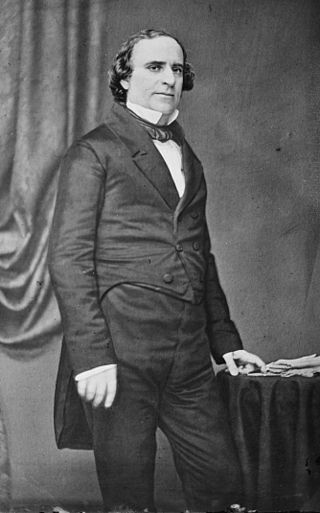
David Levy Yulee was an American politician and attorney who served as the senator from Florida immediately before the American Civil War. A secessionist and slaveowner, he also founded the Florida Railroad Company and served as president of several other rail companies, earning him the nickname of "Father of Florida Railroads."
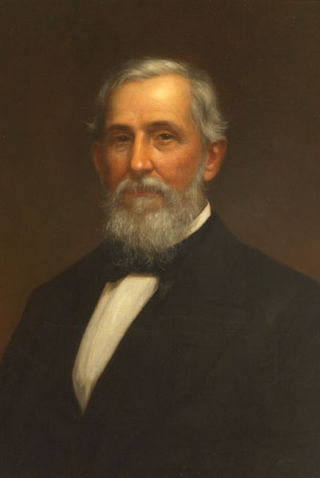
David Shelby Walker was the eighth Governor of Florida, serving from 1866 to 1868.

Augustus Emmet Maxwell was an American lawyer and politician. Maxwell served in a number of political positions in the State of Florida including as one of Florida's senators to the Confederate States Congress, Florida Secretary of State, and as Chief Justice of the Florida Supreme Court.

Jackson Morton was an American politician. A member of the Whig Party, he represented Florida as a U.S. Senator from 1849 to 1855. He also served as a Deputy from Florida to the Provisional Congress of the Confederate States from 1861 to 1862.

Florida participated in the American Civil War as a member of the Confederate States of America. It had been admitted to the United States as a slave state in 1845. In January 1861, Florida became the third Southern state to secede from the Union after the November 1860 presidential election victory of Abraham Lincoln. It was one of the initial seven slave states which formed the Confederacy on February 8, 1861, in advance of the American Civil War.
Robert Benjamin Hilton was an American lawyer, newspaper editor, soldier, and Confederate politician who served in the Congress of the Confederate States during the American Civil War.
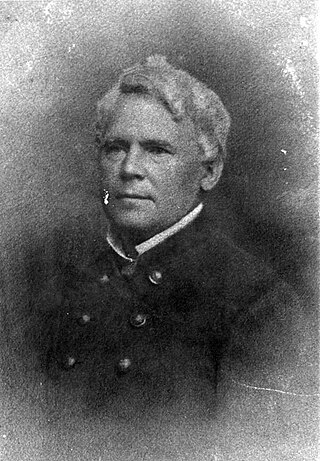
Samuel J. Douglas was an American politician and jurist. A Democrat originally from Virginia, he served on the Florida Territorial Court of Appeals 1841–45 and the Florida Supreme Court 1866–68.
Thomas Howard DuVal was a United States district judge of the United States District Court for the Western District of Texas.
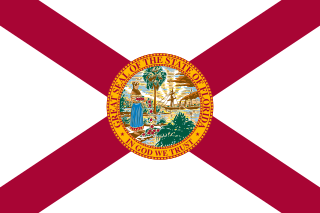
The following outline is provided as an overview of and topical guide to the U.S. state of Florida:

The 1852 United States House of Representatives election in Florida was held on Tuesday, October 5, 1852, to elect the single United States Representative from the state of Florida, one from the state's single at-large congressional district, to represent Florida in the 33rd Congress. The election coincided with the elections of other offices, including the presidential election, the gubernatorial election, and various state and local elections.
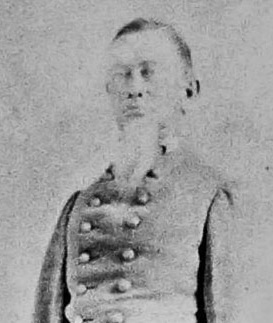
The 1858 United States House of Representatives election in Florida was held on Monday, October 4, 1858 to elect the single United States Representative from the state of Florida, one from the state's single at-large congressional district, to represent Florida in the 36th Congress. The election coincided with the elections of other offices, including various state and local elections.
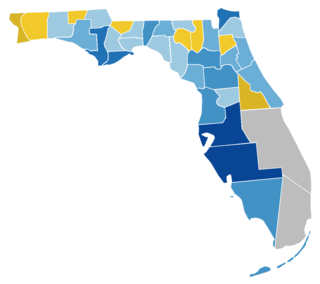
The 1860 United States House of Representatives election in Florida was held on Monday, October 1, 1860 to elect the single United States Representative from the state of Florida, one from the state's single at-large congressional district, to represent Florida in the 37th Congress. The election coincided with the elections of other offices, including the presidential election, gubernatorial election, and various state and local elections.

The mayor of Tallahassee is head of the executive branch of the government of Tallahassee, Florida.

David Porter Hogue, also known as D. P. Hogue, was an American reporter and politician from the state of Florida. Hogue served as the 4th Florida Attorney General from 1848 until 1853. He also served various terms as Mayor of Tallahassee.
The Florida Sentinel was a newspaper established in Quincy, Florida, United States and then relocated to Tallahassee, Florida where it was published from 1841 until 1865. Joshua Knowles founded the paper and Joseph Clisby became the paper's editor in Tallahassee. The newspaper office printed a journal of the Senate during its first session and reports on the Florida Supreme Court. The House also contracted with him to publish their proceedings. February 19, 1870, the paper covered an attack by alligators on circus animals being led through the Great Dismal Swamp. In 1851, the office printed the minutes of the West Florida Baptist Association annual session held October 26 to October 29, 1850, at the Union Academy Church in Jackson County.

Mariano D. Papy, also known as M. D. Papy, was an American planter, attorney, and politician from the state of Florida. Papy served as the 5th Florida Attorney General from 1853 to 1861.
Benjamin F. Allen, also referred to as B. F. Allen, was an American lawyer and politician in the state of Florida. Allen served as the 5th Secretary of State of Florida.

The 1861 Confederate States House of Representatives election in Florida was held on Wednesday, November 6, 1861 to elect the two Confederate States Representatives from the state of Florida, one from each of the state's congressional districts, to represent Florida in the 1st Confederate States Congress. The election coincided with the elections of other offices, including the presidential election and various state and local elections.

The 1876 Florida gubernatorial election was held on November 7, 1876. Democratic nominee George F. Drew narrowly defeated Republican incumbent Marcellus L. Stearns with 50.51% of the vote. This started a 90-year losing streak for republicans and they wouldn't retain the governorship until 1966.
The Fourteenth session of the Florida House of Representatives began December 18, 1865, at the state capitol in Tallahassee, Florida, under a revised Florida Constitution. The legislative session ended January 16, 1866. David S. Walker was governor.
References
- ↑ Graham, Thomas S. Florida Politics and the Tallahassee Press, 1845-61, in The Florida Historical Quarterly, Vol. 46, No. 3 (Jan., 1968), pp. 234-242
- ↑ "1843 Tallahassee fire started at Hotel Dixie". Tallahassee Democrat.
- ↑ "The Floridian & journal". Library of Congress.
- ↑ Acts and Resolutions of the General Assembly of the State of Florida. Tallahassee: Office of the Florida Sentinel, 1849, p. 109.
- ↑ Manley, Walter W.; Manley II, Walter W.; Canter, E., The Supreme Court of Florida and Its Predecessor Courts, 1821-1917. University Press of Florida, 1997 ISBN 0-8130-1540-5. p. 208.
- ↑ "floridian+and+journal" "Newspapers in Microform: United States". 1984.
- ↑ Supreme Court, Florida (1847). "Cases Argued and Adjudged in the Supreme Court of Florida".
- 1 2 Adams, John (2015-09-11). Warrior at Heart: Governor John Milton, King Cotton, and Rebel Florida 1860-1865. ISBN 9781460267851.
- 1 2 Hare, Julianne (2002). Tallahassee: A Capital City History. ISBN 9780738523712.
- ↑ Convention of the People of Florida: Begun and Held at the Capitol in the City of Tallahassee [sic], on Thursday, January 3, AD, Part 1861. Office of the Floridian and Journal, Tallahassee; Dyke and Carlisle. 1861
- ↑ http://ufdc.ufl.edu/AA00010357/00001/97x page 77
- ↑ Maxwell & Hilton